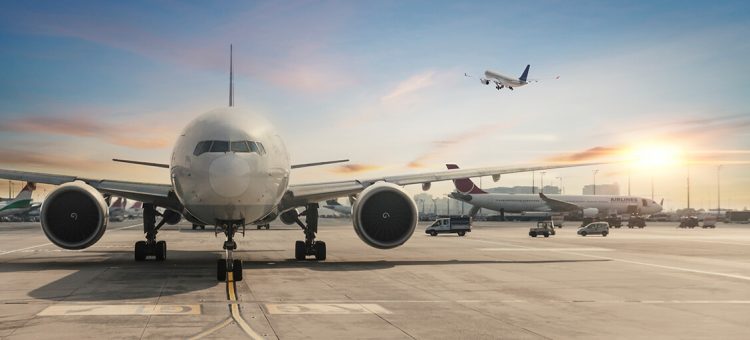Key findings:
- 48% of Americans say they plan on traveling within the next 6 months, despite a majority also saying they are more concerned about travel due to the “delta variant”.
- While most Americans are comfortable traveling as long as there are Covid-19 safety measures, one in five Americans overall, and one in three unvaccinated Americans are comfortable travelling without any precautions against the coronavirus.
- Enhanced sanitation protocols and flexible cancellation policies continue to be highly desired accommodation offerings for travelers, trailing only price and cleanliness.
- Hotels remain the most preferred type of accommodation, with vacation rentals such as AirBnb trailing far behind. Hotel-travelers placing a greater emphasis on price, cleanliness and distance to their destination when compared to those who prefer vacation rentals.
Half of all Americans have travels plans within the next 6 months
48% of Americans say they plan to travel within the next 6 months, with vaccinated Americans more likely to travel than those who are unvaccinated (54% vs 35%). Concerns surrounding Covid continue to impact travel decisions: only roughly a quarter (23%) of those who say they are not comfortable travelling until the US reaches herd immunity expect to make a trip in the next 6 months, a far lower proportion than those who are willing to travel with or without Covid precautions (56% and 58% respectively).
Wealthier Americans are especially looking forward to travel: more than two in three (69%) of those making $100,000 or higher annually have plans for travel in the next 6 months, compared with only 54% of those making $50,000 to less than $100,000 and 38% of those making less than $50,000 annually.
Among those who have travel plans, more expect to travel out-of-state (72%) than in-state (35%) or internationally (18%). Most plan to visit friends and family (60%) or travel for leisure or vacation (66%), while a small minority are expecting business travel (13%).
- Nearly half cite relaxing (51%), reconnecting with others (48%), or spending time away from home as their (47%) main reasons for travel.
- 26% are looking to experience nature.
- 17% are looking to focus on health and wellness.
- 16% are looking to avoid burnout from work.
- 14% are travelling for personal development.
- 11% are traveling for work.
- 7% are travelling due to discounts.
Reason for Traveling
Half of travelers plan on flying, cars remain the dominant mode of transportation, and only a small minority expecting to take public transit
The majority (72%) of travelers expect to use a car when traveling, whether via rental, rideshare, taxi, or personal ownership. Half (51%) expect to fly, especially among those traveling internationally (83%) and out of state (57%).
- Travel by bus is much less popular (13%), although younger travelers are more likely than those who are older to ride on a bus (public transit, shuttle, or tour bus) during their trip (24% for Gen Z, 15% for Millennials, and 9% each for Gen X and Boomers).
- Only about one in ten (9%) expect to travel by rail, train or subway and an equal number 9% expect to travel by boat, cruise, or ferry.
One in three unvaccinated Americans comfortable traveling without any Covid safety measures
Three in four Americans are currently comfortable with traveling, with 55% comfortable as long as there are precautions against Covid, and 20% comfortable without any safety measures.
- One in three (33%) of those who are not vaccinated are comfortable traveling without any Covid safety measures, more than double that of those who are vaccinated (13%).
- A majority of those vaccinated (60%) are only comfortable travelling with precautions against Covid, compared with less than half (44%) of those who are not vaccinated.
Comfort Level Towards Travel by Vaccination Status
Covid-19 “Delta variant” raises alarms for travel
61% of Americans say they are more concerned about traveling due to the recent emergence of the “delta variant”.
- Younger Americans are less worried about the new variant: 45% of Gen Z are more concerned, compared with 55% of Millennials, 64% of Gen Xers, and 70% of Boomers.
- Those who are vaccinated are more likely than those who are not to be more concerned (72% vs. 40%).
Impact of “Delta variant” on Travel Concerns
Enhanced sanitation protocols and flexible cancellation policies remain popular among travelers
When looking for accomodations, price and cleanliness are by far the most important aspects (68% and 61% respectively). However, travelers continue to value enhanced sanitation protocols (37%) and flexible cancellation (35%) policies, features popularized during the pandemic.
- 32% say proximity to their destination is important to them when looking for accommodations, and an equal number also prioritize technology offerings (wi-fi, appliances).
- 18% each say luxury amenities and outdoor spaces are important to them.
- Personalized experiences (15%), contactless technology (14%), and work-friendly areas (9%) are important to a smaller number of travelers.
Hotels remain most preferred accommodation, while vacation rentals such as Airbnb are more popular among younger travelers
55% of Americans prefer hotels when traveling, followed by 14% preferring vacation rentals (e.g. Airbnb, Vrbo) and a small minority preferring motels (10%), bed and breakfasts (7%), hostels (3%), and inns (2%).
- 19% of Gen Z and Millennials prefer vacation rentals, compared with 11% of Gen Xers and 8% of Boomers.
Those who prefer hotel accommodations are more likely to value price, cleanliness, and proximity to their destination, compared with those who prefer vacation rentals.
- 75% of those who prefer hotels say the price of their accommodation is important to them, compared with 65% of those who prefer vacation rentals.
- 67% of those who prefer hotels say cleanliness is important to them, compared with 58% of those who prefer vacation rentals.
- 35% of those who prefer hotels say distance to their destination is important to them, compared with 24% of those who prefer vacation rentals.
Read more about our polling methodology here.



